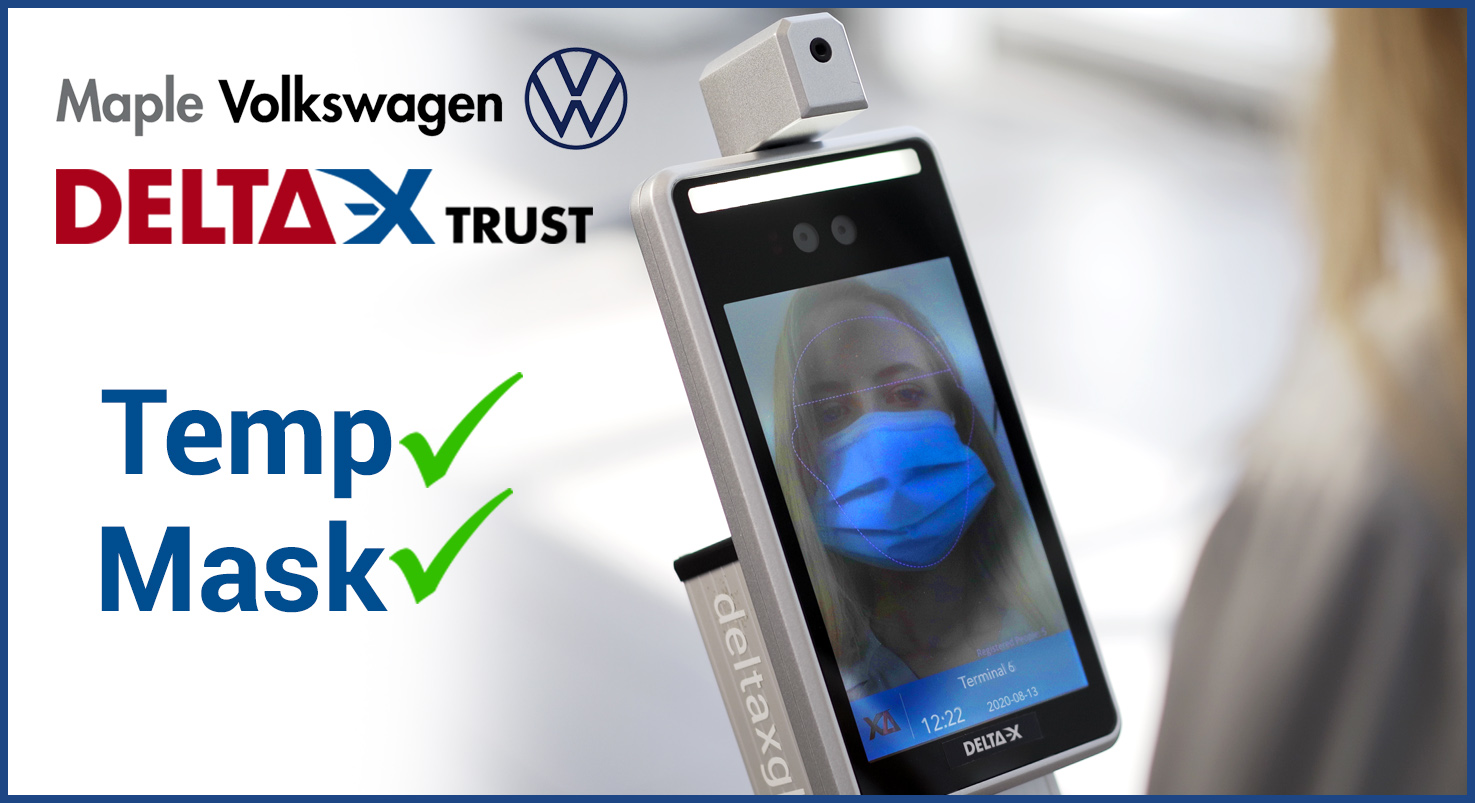
News
Pack-Smart Inc. and Maple Volkswagen install new temperature screening system
This solution is already in use in manufacturing sectors, the healthcare industry, hotels, schools, hospitals, and other public places with heavy traffic
September 15, 2020 By SP&T Staff

For the first time since the COVID-19 shutdown, Maple Volkswagen is now open for visitors without an appointment thanks to the installation of a new standalone access terminal that provides ‘next-level’ dealership customer safety and experience.
Developed by Delta-X Trust and engineered by Pack-Smart Inc., the TAC-2 standalone solution provides contactless biometric access control and real-time data tracking to provide secure authentication of digital interactions. It does this by innovating “identity and access management” (IAM) with the use of biometrics and advanced encryption standards.
This new contactless technology welcomes guests at the door and performs a check-in, a temperature screening, and reminds visitors to wear a mask. The goal is to screen every visitor for potential fever and log their visit in a secure system in the event this data be required for contract tracing.
“We lead by example,” says Jim Garofalo, General Manager at Maple Volkswagen, in a prepared statement. “As we extend our dealership services beyond ‘appointment only’, we need to enhance the showroom experience. This innovative technology is how we demonstrate to customers and staff and that their health, safety, and experience are top priority.”
This solution is already in use in manufacturing sectors, the healthcare industry, hotels, schools, hospitals, and other public places with heavy traffic, helping to elevate data security management and disease prevention.
“We’re very excited to partner with Maple Volkswagen,” said Derek Dlugosh-Ostap, CEO and President of Pack-Smart Inc. “We created this technology to ensure cybersecurity in Enterprise Level Environments where data security, hygiene, and traceability concerns can pose a barrier to the use of contact-based access technologies.”
Print this page